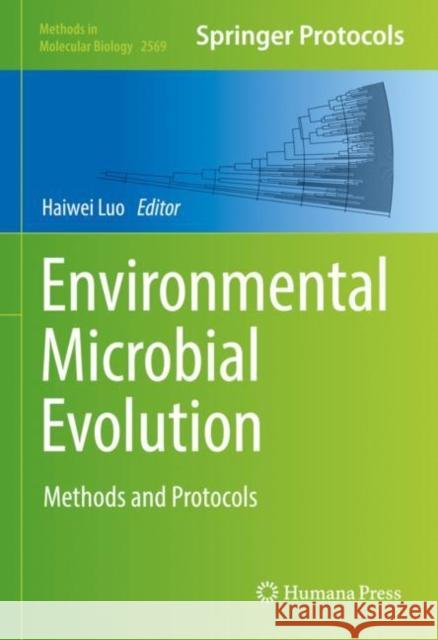Environmental Microbial Evolution: Methods and Protocols » książka
topmenu
Environmental Microbial Evolution: Methods and Protocols
ISBN-13: 9781071626900 / Angielski / Twarda / 2022
Environmental Microbial Evolution: Methods and Protocols
ISBN-13: 9781071626900 / Angielski / Twarda / 2022
cena 605,23
(netto: 576,41 VAT: 5%)
Najniższa cena z 30 dni: 578,30
(netto: 576,41 VAT: 5%)
Najniższa cena z 30 dni: 578,30
Termin realizacji zamówienia:
ok. 16-18 dni roboczych.
ok. 16-18 dni roboczych.
Darmowa dostawa!
This volume explores the latest techniques used to study environmental microbial evolution, with a focus on methods capable of addressing deep evolution at long timescales. The chapters in this book are organized into three parts. Part One introduces molecular dating approaches and time calibration ideas that allow for the determination of evolutionary timescales of microbial lineages. Part Two describes several advanced phylogenomic tools such as models for genome tree construction, a taxon sampling method, outgroup-independent tree-rooting methods, and gene family evolution models. Part Three covers techniques used to study trait evolution. Written in the highly successful Methods in Molecular Biology series format, chapters include introductions to their respective topics, lists of the necessary materials and reagents, step-by-step, readily reproducible laboratory protocols, and tips on troubleshooting and avoiding known pitfalls.
Cutting-edge and comprehensive, Environmental Microbial Evolution: Methods and Protocols is a valuable tool for all researchers who are interested in learning more about this important and evolving field.











